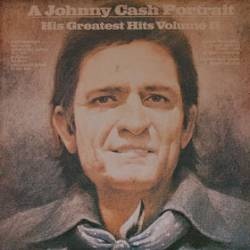| Greatest Hits, Vol. 2 | ||||
|---|---|---|---|---|
 | ||||
| Greatest hits album by | ||||
| Released | September 1971 | |||
| Recorded | August 8, 1958–July 10, 1970 | |||
| Genre | ||||
| Length | 29:38 | |||
| Label | Columbia | |||
| Producer |
| |||
| Johnny Cash chronology | ||||
| ||||
| Review scores | |
|---|---|
| Source | Rating |
| AllMusic | |
Greatest Hits, Vol. 2 is a greatest hits compilation by country singer Johnny Cash, released on Columbia Records in 1971. It combines older songs from Cash's years with Sun Records (such as "Hey Porter" and "Folsom Prison Blues") with more recent hits like "A Boy Named Sue" from Cash's At San Quentin album and the Kris Kristofferson-penned "Sunday Mornin' Comin' Down". The album was certified Gold on January 25, 1977, and Platinum on February 16, 1995, by the RIAA.[ citation needed ]